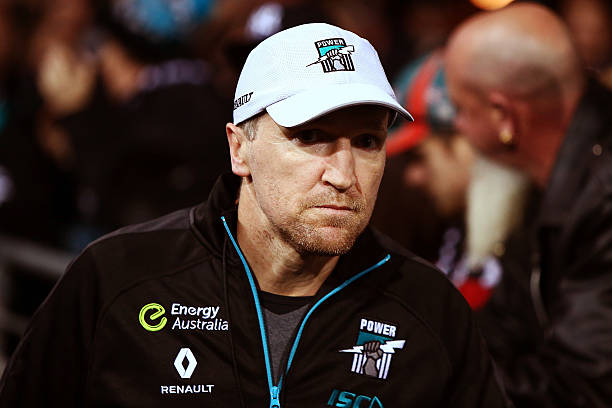Arsenal’s Head of Elite Recovery, Darren Burgess, has been speaking about the benefits of ‘forced recovery’ amid the pressure of social media abuse, as well as his need to learn Spanish now that the management team at Arsenal has changed.
Appearing on the podcast, RTS, last month, the 44-year-old spoke about how Arsenal educate players about the pitfalls of social media, how they relax and de-stress after a poor performance, and how it’s important to worry more about the player than the GPS stats.
He also admits he’s learning Spanish due to the changes at the club that have seen Unai Emery, Juan Carlos Carcedo, Pablo Villanueva and Javi Garcia arrive to form the coaching team along with Head of Football Relations Raul Sanllehi and strength coach Julen Masach, all of whom hail from Spain.
You can listen to the interview in full below with some select quotes beneath:
“We’ve got guys who have over 10, 11 million followers on Instagram. They just have to send out an innocent message and probably 100,000 people are going to send back an abusive one if they’ve had a bad game,” Burgess said.
“That creates a stress that has an impact on them physically and certainly mentally. A float tank is ideal, as is yoga, massage, meditation – anything where the technology is off, their body is recuperating and you’re forcing them into a little bit of silence so they can process what they’re doing and take their mind off anything to do with football.
“We’re trying to educate our guys about the benefits of that. I like that concept of forced recovery for sure.
“One was obsessing too much on numbers,” he added. “Probably 10 years ago I worried too much about GPS and not about the player.
“Respect the player, not just the numbers. Really deal with each player as an individual and find out who can deal with those loads a little better than others.
“And really early on in my career, I got too close to players. I thought it was really cool working with professional athletes when I was 22, 23.
“You’d go for a drink with them and they’d treat you really well and come and watch you play and you’d think you were buddies. In my first role with the Sydney Swans (AFL team), I applied for a full-time job and the guy who was employing said, ‘listen, you’re too close to the players’. He was 100% right.
“That’s advice I’d give and certainly a mistake I made.
“The players have to respect you. If they see you out drinking or whatever else, there’s no respect there when it comes to you asking them to do uncomfortable things.”
He also stated one of his aims for the future: “I want to learn Spanish because I’m in a Spanish environment at the moment. I’ve started – Spanish with an Australian accent should be interesting.”

